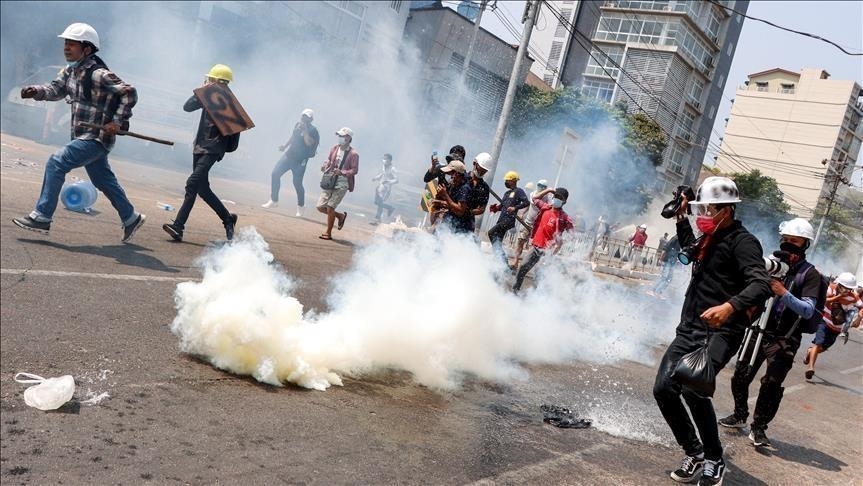Recent violent conflicts on the northern border of Myanmar, which serves as gateway to the Bay of Bengal for China, has increased security concerns, and is making Beijing nervous.
Just a fortnight ago, (on 24 November), a convoy of trucks transporting goods from China into Myanmar were attacked by suspected insurgents.
Chinese People Liberation Army (PLA) conducted live-fire drills right on the Myanmar-China border. The unrest threatens to escalate the civil war in Myanmar, posing further complications for China.
According to the report, the truck convoy, near Muse, Myanmar, was set ablaze in what is suspected to be an insurgent attack. This occurred shortly after the Brotherhood Alliance, an ethnic coalition of three groups, launched Operation 1027, capturing key outposts along Myanmar’s border with China.
The attack happened simultaneously with discussions on border stability between China’s Ambassador Chen Hai and Myanmar Foreign Minister Than Swe in Naypyidaw, amidst signs of straining bilateral relations.
The PLA’s Southern Theatre Command conducted three-day live-fire exercises starting 25 November, part of its annual training plan.
According to the Chinese military, the drills involved rapid maneuvers and staggered live-fire exercises in various regions and directions. The exercises demonstrated the PLA’s readiness and capability to protect national sovereignty and border stability.
In a parallel development, Chinese naval ships, including the Zibo guided missile destroyer and the Jinzhou guided missile frigate, visited Yangon, Myanmar, for a four-day ‘friendship visit’, starting 27 November.
Senior Myanmar military officers welcomed the vessels.
The military exercises, focusing on emergency readiness and border control, send a clear message — Myanmar’s internal disturbances should not affect neighboring borders, and China is prepared to protect its interests.
Recent conflicts in Myanmar have displaced over 330,000 people, with many seeking refuge in China. However, China’s recent use of tear gas and tightened border controls suggest a crackdown on refugee inflow.
Meanwhile in Yangon, Myanmar, nationalist protesters recently rallied outside the Chinese Embassy, criticising Beijing’s alleged support for northern insurgent groups.
Junta spokesman Zaw Min Tun responded, focusing on Western media’s attempts to damage Myanmar-China relations, without directly addressing the protesters’ accusations against China.
Following the convoy attack, China’s embassy in Myanmar advised Chinese nationals in Laukkai to evacuate due to high safety risks. Laukkai, like Muse, is in Shan State bordering China, where a rocket attack killed at least ten people attempting to flee the fighting.
The Global New Light of Myanmar reported that around 120 of the 258 vehicles in the convoy were destroyed by the arson. Li Kyar Win, a spokesperson for one of the insurgent groups, denied responsibility, stating they do not conduct attacks that harm public interests.
Since mid-2023, Myanmar’s military has faced significant challenges, losing control of towns and outposts in the northeast and other regions. The United Nations reports over 2 million people displaced across Myanmar due to the escalation in the conflict.
China’s concerns extend beyond border insecurity. Recent joint operations by Chinese and Myanmar officials against internet fraud centers, blamed for cheating many Chinese citizens, have also strained relations.
Myanmar recently extradited Chinese telecom fraud suspects. Beijing’s frustration with the Myanmar military government’s handling of these fraudsters has led to a tougher stance, indicating growing short-term concerns for China regarding Myanmar.

